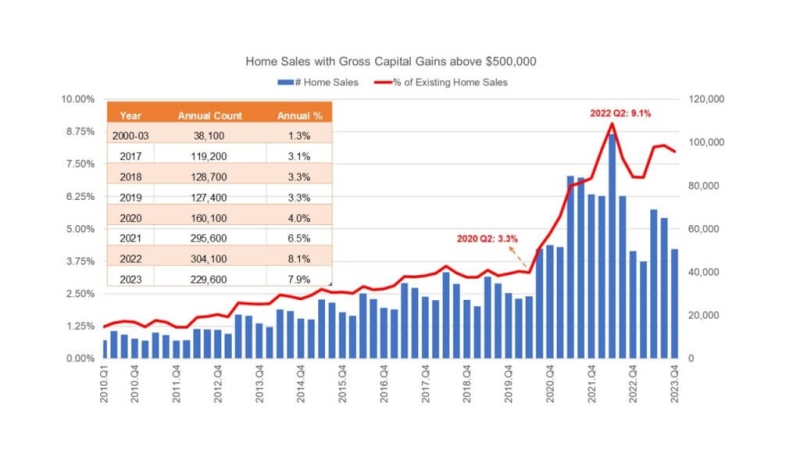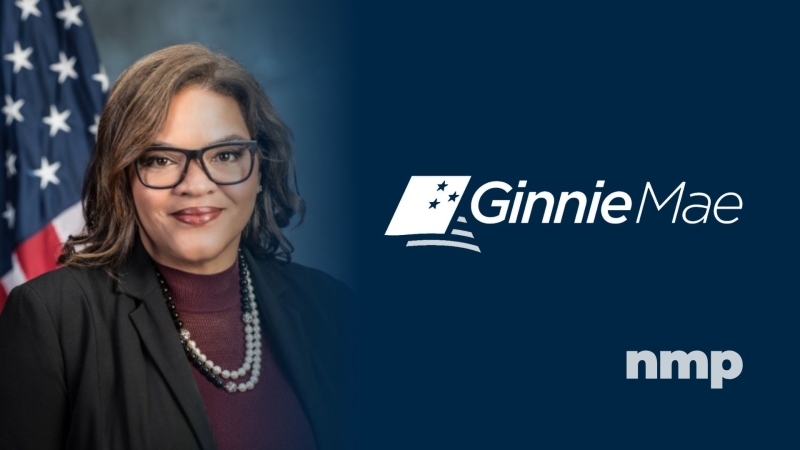Is Your Company Your Classroom?

Learning is a lifelong endeavor in any business, but it’s particularly necessary in the mortgage industry, where new products, new underwriting standards and new regulations crop up regularly. In addition, today’s mortgage professionals have education requirements built into the licensing system, and all state-licensed mortgage loan originators have to take at least eight hours of continuing education every year1. Although these requirements can feel like a burden, they really represent an opportunity.
Mortgage professionals who go beyond the required eight hours of continuing education and seek out learning experiences elsewhere position themselves to succeed in an increasingly competitive market. Education helps you not only safeguard your business from regulatory scrutiny, but also safeguard your client base from competitors. If mortgage professionals are armed with the latest knowledge on products, underwriting and regulations, they can offer the best service to their clients and move their loans more quickly through to close.
But in order to fulfill not only education requirements but also your desire to learn, you’ll need help. There is a wealth of information available—if you know how to find it—and many online tools to help bring you up to speed on everything from TILA-RESPA Integrated Disclosure (TRID) changes to the latest loan-to-value ratios (LTVs) for Federal Housing Administration (FHA) loans. But hunting down information, classes and webinars can take up time better spent on actually learning and serving your clients. Your lending partners or mortgage company should be there to support you and your educational needs. Are you taking advantage of all that they offer?
Product and company resources
Training and educational resources are the first things any mortgage professional should look at when considering working with a new lender or company. Whether you’re new to the industry, considering changing companies, or working with a new wholesale loan provider, you want to make sure you are getting the resources you need to improve your knowledge, as well as your business.
When looking at a new company, check out what kind of training they offer to get you up to speed and not only on their specific processes, but also on the products they offer. Some companies work extensively with FHA or U.S. Department of Veterans Affairs (VA) loans, and some companies have created their own unique loan products. Look to see what products the company you’re considering offers. If they work with FHA loans, do they do Streamline loans? Do they work with FHA 203(k) full and Streamline renovation loans? Do they work with a variety of credit profiles, or do they deal exclusively with conventional, high FICO-score clients?
Once you’ve learned what products they offer, dig deeper for resources to support these loans. What kind of documentation is provided for these products? Are there FAQ pages on their Web site? Do they compile the latest news on specific products, like FHA Mortgagee Letters? Does the company offer Webinars or classroom training sessions on working with these loans? These are just a few of the simple things a company can do to make learning easier for mortgage professionals, and these kinds of resources are critical for originators to hit the ground running with unfamiliar loan products.
By educating yourself on the products your company services, you’ll not only widen your knowledge base, but also your client base. Armed with information on a full range of mortgage products, you will have everything you need to sell you—and your company’s—value to clients.
Regulatory resources
Product offerings are just one piece of the puzzle, however. Regulations and compliance are top of mind for many in the industry today, particularly with the recent TRID implementations. These rules can be complex and difficult to understand—kind of like a mortgage may be to your clients. Understanding new regulations and how they apply to you and your work is critical information that all mortgage professionals must have.
Getting up to speed on regulations can require more than a few pages of light reading, however, particularly for independent brokers who may be liable for any lapses in compliance or misreading of a rule. Taking online courses, attending in-person sessions or participating in local panels are good starting points for anyone working in the mortgage industry today. Some lenders will offer Webinars for their brokers that break down the regulations and what they mean for your day-to-day work. In-house Webinars are excellent, but some lenders may even bring in outside help. Outside law firms can be particularly useful, for example, when considering the legal implications of recent rule changes and implementations.
Of course, one regulation that all mortgage professionals are familiar with by now is the Secure and Fair Enforcement for Mortgage Licensing Act of 2008 (SAFE Act)2. This calls for both pre-licensing and continuing education requirements for all state-licensed mortgage loan originators. Pre-licensing education must be at least 20 hours, and continuing education requires eight hours of coursework annually. In order to qualify for the requirement, courses have to be approved by the National Mortgage Licensing System (NMLS). Although this education must be pursued by each originator individually, many lenders and mortgage companies will sponsor NMLS-approved courses.
Borrower resources
In addition to offering excellent educational resources to brokers and originators, lenders should also offer educational tools for borrowers. A mortgage is a complex financial undertaking, and the mortgage process can be complicated and trying. Mortgage professionals can assist borrowers in explaining the details of a loan and the loan process, and some borrowers may be hesitant to ask questions if they don’t understand something.
This is where lenders can step in and provide further education for borrowers. What does your lender provide to enhance your clients’ experience with the mortgage process? Clients who understand what they are undertaking and who can get the information they need will be happier with their mortgage, and by extension, their mortgage originator.
One of the simplest ways to help borrowers is pre-qualification or pre-approval tools. Determining how much mortgage they can afford is often the first step customers will take toward becoming a homeowner, and the faster and simpler it is, the better. Many lenders offer online pre-qualifications, and this starts the education process for many borrowers. This is also often the first time they start to consider things like debt-to-income ratio, credit scores and more. By offering tools to determine how much they qualify for, as well as providing explanations of common mortgage terms, lenders can help create an educated and informed borrower.
Once a client is approved for a loan and is moving ahead with buying a home, there’s still more education necessary, and lenders can help their brokers by offering different tools for borrowers. The mortgage process is a complicated one, and many borrowers do not fully understand the financial agreement they are making. Some lenders, however, have created online tools to help borrowers get a better picture of exactly what their mortgage means to their financial future. These loan-review tools will take borrowers through the details of their loan little by little, going beyond the basics of transaction costs, principal amount, term, interest rate and monthly payment. These tools often even help with a review of the borrower’s current annual and monthly income, and an outline of mortgage payment options, along with budgeting items like non-housing related expenses and other recurring payments. Online tools such as these offer a great service to brokers and their clients, as they allow borrowers to go through the information at their own speed and when it is convenient for them.
Mortgage professionals should consider carefully what resources are available for their clients, as things like loan-review tools and pre-qualification apps can make the loan process more efficient and streamlined. Borrowers will be happy to get the information and education they need, and even happier with the services their lender and broker have provided.
Education is more critical than ever for mortgage professionals. They must be up to date not only on the latest mortgage products and market conditions, but also on industry regulations and standards. There is a plethora of information available, but sifting through it all can take more time than busy originators have. Partnering with lenders and mortgage companies that offer educational resources for their brokers—and their borrowers—will help mortgage professionals succeed in today’s market. With a strong education in hand, originators can spend more of their time helping clients and closing loans.
Footnotes
1—Mortgage.NationwideLicensingSystem.org/profreq/education/Pages/default.aspx.
2—Mortgage.NationwideLicensingSystem.org/profreq/education/Pages/default.aspx.

Rey Maninang is senior vice president and national sales director for Carrington Mortgage Services LLC’s Wholesale Mortgage Lending Division. Under Rey’s leadership, Carrington’s Wholesale Division has increased volume production by over 100 percent within a two-year period, and successfully launched several strategic initiatives resulting in consistent profit increases.
This article originally appeared in the October 2015 print edition of National Mortgage Professional Magazine.





